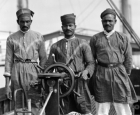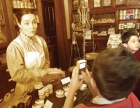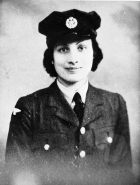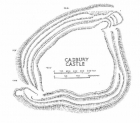Outside the classroom
Working outside the classroom environment gives younger children lots of experiences to develop their understanding. For example a simple walk around the local streets supports their growing understanding of old/new and local history. Experiencing contrasting spaces, for example a castle or cathedral helps them to begin to explore similarities and differences. Visiting historic sites or museums will encourage their language development and communication skills as well as give a context to these discussions.
-

Churches as a local historical source
ArticleClick to view -

Teaching diversity through drama
ArticleClick to view -

Museums, schools and creativity: How learning can be enhanced
ArticleClick to view -

Geosong: a transition project
ArticleClick to view -

Creating the 'creative history' website
ArticleClick to view -

A creative Egyptian project
ArticleClick to view -

Using museums, libraries and art galleries
ArticleClick to view -

Making use of outstanding resources in museums
ArticleClick to view -

Co-ordinators' concerns: Visits and Ofsted
ArticleClick to view -

A View from the Classroom: Writing History
ArticleClick to view -

The History around us: Local history
ArticleClick to view -

Doing history in the early years and foundation stage
ArticleClick to view -

Using Spaces Near You
ArticleClick to view -

Doing history with objects - A museum's role
ArticleClick to view -

Artefacts handling at Brunel's SS Great Britain
ArticleClick to view -

Cross Curricular Project on a famous person
ArticleClick to view -

Planning for history and environmental education
ArticleClick to view -

Case Study: Working with gifted and talented children at an Iron Age hill fort in north Somerset
ArticleClick to view -

Children's thinking in archaeology
ArticleClick to view -

Piecing together the puzzle: Some thoughts on historical sites
ArticleClick to view

